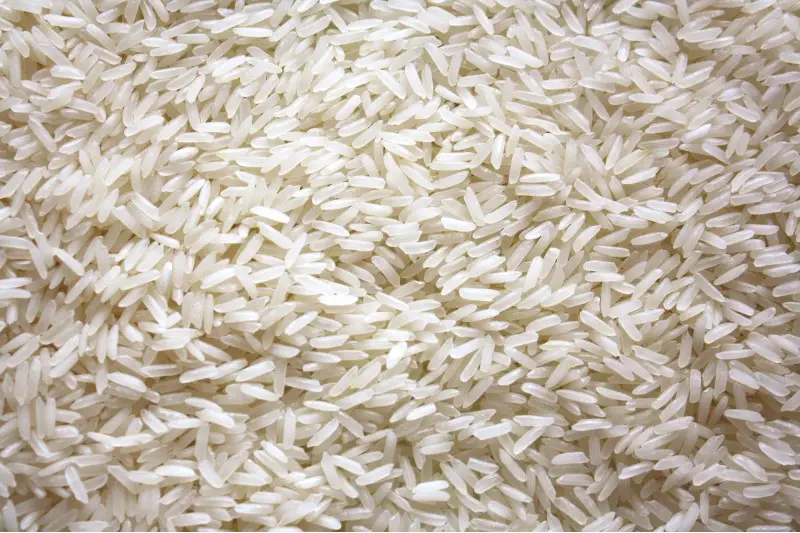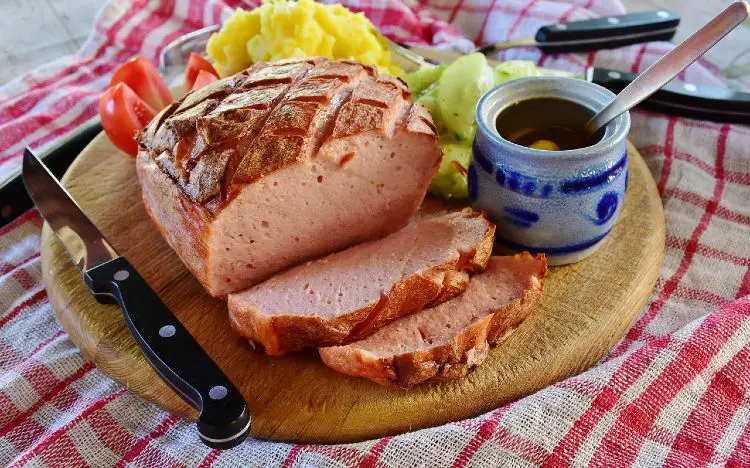What Does Jasmine Rice Taste Like?
Quick Answer
Jasmine rice has slightly sweet and nutty flavor. When cooked, it has a fluffy, slightly sticky texture, though it is less sticky than other types of rice such as short-grain varieties. It gives “buttery” feel in the mouth, with grains that cling together but are not mushy.
What is Jasmine Rice?
Jasmine rice is a long-grain variety of fragrant rice originally from Thailand. It is known for its floral aroma and slightly sweet, nutty flavor. When cooked, it has a fluffy and slightly sticky texture, making it a popular choice for pairing with a wide range of dishes, particularly in Southeast Asian cuisines.
What Does Jasmine Rice Taste Like?
Jasmine rice is renowned for its unique and inviting flavor profile, characterized by a delicate sweetness accompanied by subtle nutty undertones. This inherent sweetness isn’t overpowering; rather, it serves as a balancing element that enhances the overall taste.
The nutty notes add depth and complexity, making jasmine rice far more than just a side dish. Together, these flavors create a palate-pleasing experience that stands out from other types of rice.
Comparison with Other Rice Varieties like Basmati
While both jasmine and Basmati rice fall under the category of aromatic or fragrant rice, their flavor profiles are distinct. Basmati rice, primarily grown in India, is more aromatic and has a somewhat floral scent, with flavor notes that are often described as earthy and more complex. While jasmine rice is soft and slightly sticky, Basmati rice has a drier, fluffier texture and grains that are longer and more slender.
In terms of flavor, Basmati leans toward a more neutral, nutty essence without the inherent sweetness found in jasmine rice. This makes Basmati a popular choice for dishes that require the rice to absorb more robust flavors, like biryani or pilaf. On the other hand, the subtle sweetness of jasmine rice complements the spiciness and complexity of Southeast Asian dishes such as Thai curries or Vietnamese stir-fries.
What is The Texture of Jasmine Rice?
When cooked, jasmine rice has a texture that strikes a delightful balance between fluffiness and stickiness. Unlike short-grain rice varieties that tend to be very sticky and clump together, or long-grain varieties like Basmati that remain quite separate, jasmine rice offers a middle ground. Its grains are soft and cling together somewhat, making it easy to eat with chopsticks or a fork.
However, they are not so sticky that they become gummy or mushy. The rice maintains a certain level of individual grain integrity, resulting in a mouthfeel that is both satisfying and versatile.
FAQs
Is Jasmine Rice Sweet?
While it isn’t sweet in the way that sugar is, jasmine rice does have a natural, subtle sweetness. This subtle sweetness complements both savory and sweet dishes.
How Does The Taste Of Jasmine Rice Differ From Basmati?
Jasmine rice has a slightly sweet, nutty flavor, while Basmati rice leans towards a more neutral, earthy, and nutty profile. Basmati rice is also more aromatic with floral undertones, and it has a drier, fluffier texture when compared to the slight stickiness of jasmine rice.
Does Jasmine Rice Taste Like Jasmine Flowers?
Despite its name, jasmine rice is not flavored with jasmine flowers. The name comes from its naturally occurring aroma, which is similar to that of jasmine flowers. However, the taste is more nutty and slightly sweet, rather than floral.
Is Jasmine Rice Good For Sushi?
Jasmine rice is generally not used for sushi, as it is slightly too sticky and not as cohesive as the short-grain or medium-grain rice varieties that are traditionally used for sushi. Its flavor profile also differs from the more neutral-tasting rice commonly used in sushi.
Does Rinsing Jasmine Rice Affect Its Flavor?
Rinsing jasmine rice helps remove excess starch from the surface of the grains, which can lead to a cleaner, fluffier texture. It doesn’t significantly alter the rice’s flavor, but it does improve the texture, making it less gummy when cooked.
Can You Enhance The Flavor Of Jasmine Rice?
Yes, you can enhance the flavor of jasmine rice by using chicken or vegetable broth instead of water for cooking or by adding ingredients like bay leaves, cardamom, or a cinnamon stick during the cooking process.
Does The Taste Of Jasmine Rice Change Over Time?
Like any other rice, jasmine rice can go stale over time, leading to a less vibrant flavor. It’s best to consume it within the manufacturer’s recommended time frame and to store it in a cool, dry place.
How Does The Taste Of Jasmine Rice Compare To Brown Rice?
Jasmine rice is a white rice variety and tends to have a softer, more delicate flavor and texture when compared to brown rice. Brown rice has a more robust, nutty flavor and a chewier texture.
What Types Of Dishes Does Jasmine Rice Pair Well With?
Jasmine rice pairs excellently with a wide range of dishes, particularly those from Southeast Asian cuisines. It complements the flavors in curries, stir-fries, grilled meats, and various seafood dishes.
Does Jasmine Rice Taste Different From Regular Rice?
Yes, jasmine rice does taste different from regular white rice. While regular white rice has a neutral flavor and lacks any distinct aroma, jasmine rice is known for its fragrant, floral aroma and subtly sweet, nutty taste. These characteristics make jasmine rice a popular choice for those looking to elevate their culinary experience.
Does Jasmine Rice Taste like Jasmine?
Despite its name, jasmine rice does not actually taste like jasmine flowers. The name is derived from its aromatic qualities, which are similar to the smell of jasmine. However, the rice itself has a unique flavor profile-slightly sweet and nutty-which is distinct from the floral notes of jasmine flowers.
Does Jasmine Rice Smell Like Perfume?
Jasmine rice is aromatic, but it doesn’t taste like perfume. The aroma is natural and subtle, enhancing the rice’s flavor rather than overwhelming it. Some people describe the smell as floral or reminiscent of popcorn, but this does not translate into a perfumed or artificial taste.
Why Does Jasmine Rice Smell Bad?
Fresh jasmine rice should not smell bad. If it does, it could be a sign that the rice is old, improperly stored, or even spoiled. Always store jasmine rice in a cool, dry place and use it within the recommended time frame to ensure it retains its aroma and flavor.
How to Make Jasmine Rice Taste Better?
To enhance the natural flavors of jasmine rice, you can cook it in chicken or vegetable broth instead of water. Spices like bay leaves, cardamom, or a cinnamon stick can also be added during the cooking process for added complexity. Some people also enjoy stirring in a bit of coconut milk for creaminess and added flavor.
Does Jasmine Rice Have a Strong Taste?
Jasmine rice has a distinctive but not overpowering taste. Its slightly sweet and nutty flavor profile is subtle enough to serve as a backdrop for more robust flavors in a dish, yet distinctive enough to be enjoyable on its own. The aroma is often what people notice first, but the flavor is mild compared to more pungent rice varieties like wild rice.


